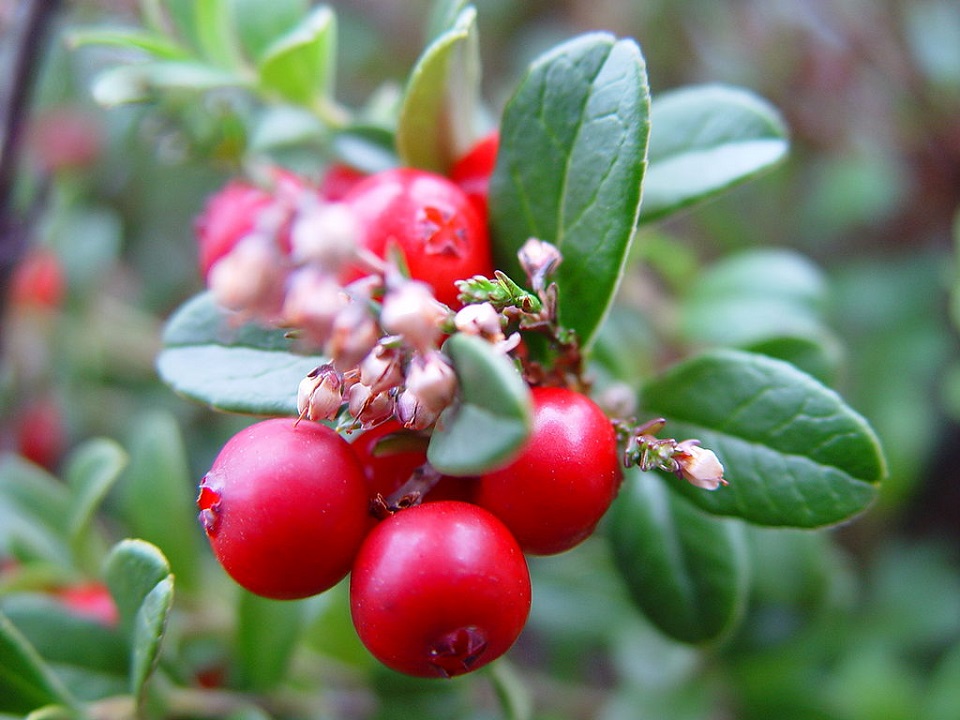
Lingonberries appear to help mitigate potential negative effects of very high-fat diets – at least in mice.
This is the somewhat surprising discovery made by researchers at the Lund University in Sweden. The researchers set about to investigate if berries can affect markers of health in mice.
They divided mice into different groups. Then put some on a low-fat diet and others on a very high-fat diet. Additionally, they were also served various types of berries: lingonberries, blackberries, raspberries, crowberry, and cranberries.
Three months later the experiment was evaluated and the mice were examined and tested. They then noticed that the mice that had received the high-fat diet and lingonberries appeared to be protected against metabolic syndrome.
Metabolic syndrome is a disorder often accompanied by very high-fat diets. These lingonberry mice also indicated less inflammation and even more striking, they were actually less obese than the other mice feed other berries.
The researchers, therefore, concludes that some substance in lingonberries contribute to these health effects and they will now try to identify what this substance is.
Since this study was conducted with mice, the magnitude of these findings should most probably not be regarded as evidence for lingonberries being equally effective for humans. Protecting against obesity and metabolic syndrome. But with that said, it certainly is compelling research in an ever more obese world.
Lingonberries contain organic acids, vitamin C, vitamin A (as beta-carotene), B vitamins (B1, B2, B3) also potassium, calcium, magnesium, and phosphorus. In addition, they also contain antioxidants and phytochemicals, which has been linked to protection against urinary-tract infections. And besides lingonberries, berries in general certainly contains many beneficial substances.
The aim of the study was to screen eight species of berries for their ability to prevent obesity and metabolic abnormalities associated with type 2 diabetes. Methods. C57BL/6J mice were assigned the following diets for 13 weeks: low-fat diet, high-fat diet or high-fat diet supplemented (20%) with lingonberry, blackcurrant, bilberry, raspberry, açai, crowberry, prune or blackberry. Results. The groups receiving a high-fat diet supplemented with lingonberries, blackcurrants, raspberries or bilberries gained less weight and had lower fasting insulin levels than the control group receiving high-fat diet without berries. Lingonberries, and also blackcurrants and bilberries, significantly decreased body fat content, hepatic lipid accumulation, and plasma levels of the inflammatory marker PAI-1, as well as mediated positive effects on glucose homeostasis. The group receiving açai displayed increased weight gain and developed large, steatotic livers. Quercetin glycosides were detected in the lingonberry and the blackcurrant diets. Conclusion. Lingonberries were shown to fully or partially prevent the detrimental metabolic effects induced by high-fat diet. Blackcurrants and bilberries had similar properties, but to a lower degree. We propose that the beneficial metabolic effects of lingonberries could be useful in preventing obesity and related disorders.
_______________
Evaluation of Beneficial Metabolic Effects of Berries in High-Fat Fed C57BL/6J Mice. Journal of Nutrition and MetabolismVolume 2014 (2014).
______________________________











![OpenAI. (2025). ChatGPT [Large language model]. https://chatgpt.com](https://www.illustratedcuriosity.com/files/media/55136/b1b0b614-5b72-486c-901d-ff244549d67a-350x260.webp)
![OpenAI. (2025). ChatGPT [Large language model]. https://chatgpt.com](https://www.illustratedcuriosity.com/files/media/55124/79bc18fa-f616-4951-856f-cc724ad5d497-350x260.webp)
![OpenAI. (2025). ChatGPT [Large language model]. https://chatgpt.com](https://www.illustratedcuriosity.com/files/media/55099/2638a982-b4de-4913-8a1c-1479df352bf3-350x260.webp)








